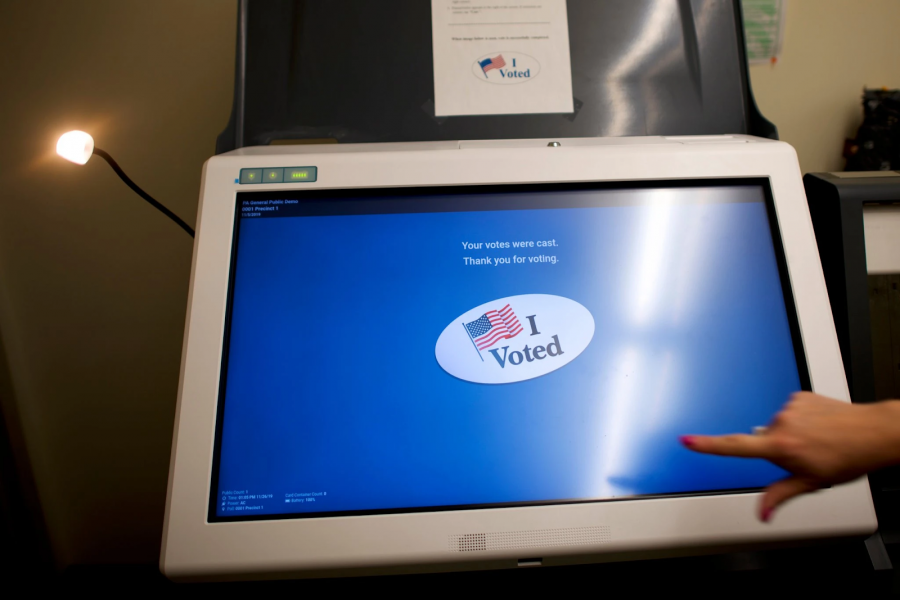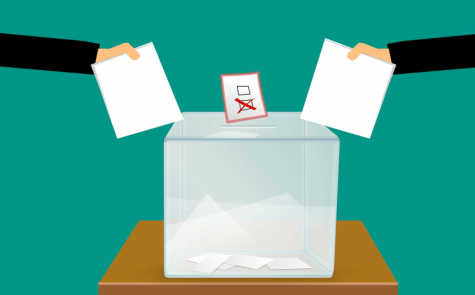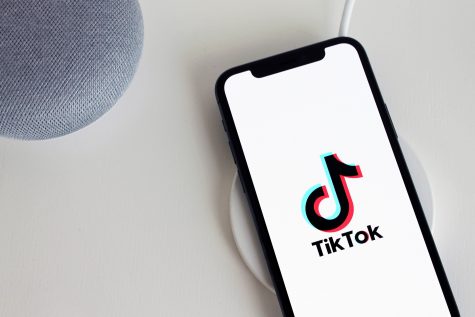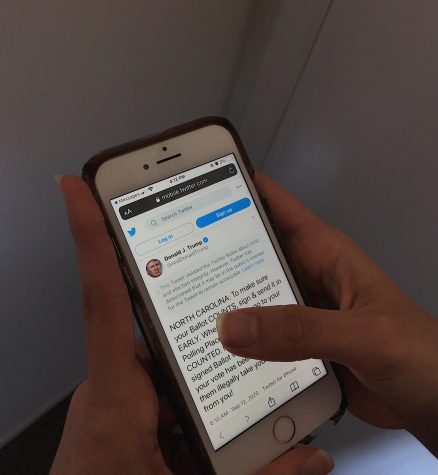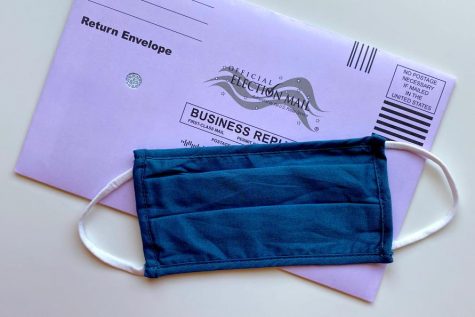Electronic Voting and Why We Aren’t Ready Yet
October 27, 2020
In the morning, my phone wakes me up. On my way to school and back, I stream music and pay for my bus ticket through my phone. At school, I chat with others through my phone and do work on my laptop. Back at home, I try to do as much of my work digitally, and resent the work that is assigned on paper.
Whenever something has to be done on a massive scale like the US Census, conventional wisdom points us to use technology. If I wanted to conduct a survey of all the students on campus, I’d be insane to hand out papers. I’d just make a Google Form and have people scan QR codes to it.
So then the election comes around and I begin to wonder: why is voting, this extremely important, mass-scale operation involving the inputs of every citizen in the country, conducted on good old fashioned holepunched paper?
Is there any evidence of this working already?
30 states use some form of electronic voting machine with/without a printed paper trail backup. With that said, only one state in the US has a smartphone voting app, West Virginia. Outside of the US, Estonia has been offering online voting since 2005.In their 2019 parliamentary elections, ~43% of participating voters voted online.
Whenever we implement technology like voting machines with the intention of cutting down on paper ballot usage and improving the voter experience, we end up creating vulnerabilities in the trust voters have that their vote will be counted. Political candidates can use doubt about the viability of different voting methods to make the election results look fake or rigged.
So the machines are safe?
Not necessarily. In the world of computer software, there is the concept of open-sourcing software. This means to publicise the code used to run physical hardware or software on the internet. This allows for software developers to borrow from each other. If someone has already written the code, why would you bother to write it again? Open the credits of any popular app, and you’ll see a large list of open source code used in development. However, there is a tradeoff. If you open-source code pertaining to something as critical as an election, it can be argued that you are simply giving prospective hackers an easier way in, as it is easier to find a vulnerability as a hacker if you have the source code. In reality, nearly none of the voting machines out there use open source software. Every computer involved is likely to be running closed source software, and good luck getting the average non tech-savvy voter to understand and trust it.
Smartphone voting is a whole other rabbit hole
Let’s say we allowed voting in the coming election using a smartphone app. What would likely happen is that whoever wants to sway the results towards a particular candidate will start to develop malware for iOS and Android that hijacks your phone and votes on your behalf. I’ve seen my fair share of young and old people alike who don’t keep their smartphones safe from malicious apps, and until that changes, I would advise against performing any highly important tasks like voting on those devices.
Online post regarding issues with a voting machine, credited to Tom Scott in his video https://www.youtube.com/watch?v=LkH2r-sNjQs
So when will we be ready? It’s hard to say. To be honest, I originally had around three long paragraphs written that dwarfed the relatively short article above going into detail about how humanity neglects the complexity of their technology and how this ignorance is eventually going to get someone’s brain hacked, but that’s a whole article unto itself. In short, we’ll be ready when we learn. We’ll be ready when everyone learns how that gray lock icon in your browser means that your activity is secure, and when we begin to trust technology, not because some tech guru at your high school told you so, but because you know so.


